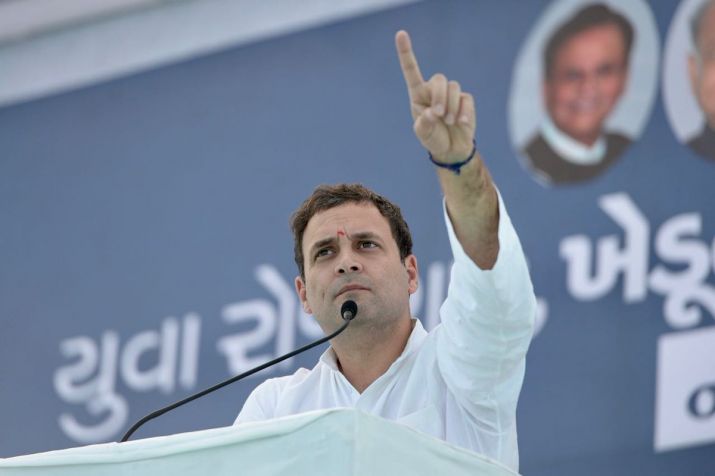The Congress President Rahul Gandhi’s decision to contest from Wayanad district of Kerala may be an attempt to bridge the north and the south, but is receiving backlash from across the political spectrum.
Kabir | The New Leam

The elections mark a time that every move made by political parties is seen as an attempt to make a statement with the voters and woo them over in terms of the electoral results.
The recent decision by the Congress party to have its President Rahul Gandhi contest from Wayanad district of Kerala is one among the many recent moves that are being both appreciated and critiqued in the contemporary electoral ambience.
The decision has been viewed from many angles but one of the predominant discourses being offered is that this is a bid by the Congress party to improve the Congress’s appeal in the southern states of India.
This is being seen as an important step by the Congress to please voters in the south because apart from the Congress stronghold of Amethi, Rahul Gandhi has also chosen to contest from Kerala’s Wayanad. The announcement that Congress President Rahul Gandhi will be contesting from Wayanad had been announced by veteran leader of the Congress from Kerala and former defence minister AK Anthony.
This move made by the Congress is being seen as a significant attempt to consolidate Congress party’s base in the south and especially in the state of Kerala. Kerala has 20 Lok Sabha seats, Tamil Nadu has 39 Lok Sabha seats and Karnataka has 28 seats.
The Congress spokesperson Randeep Surjewala said that this decision by the Congress was an attempt to convey a message to the southern states that they are deeply valued and respected. He also asserted that it was not only the north but also the south which was an integral part of India’s way of life.
Although the Congress made this decision to leave an impact in the south, the decision has received widespread criticism from both ends of the spectrum- the Left and the Right wing parties who have found more than one problem with the Congress’s decision.
While CPI(M)Politbureau member Prakash Karat said that the Congress Party’s decision to contest from Wayanad district meant that it was trying to displace and fight the Left in the state of Kerala.
He expressed disillusionment and said that this move by the Congress to increase tensions with the Left parties marked a conflict of interests because the main aim at this moment should have been to collectively fight against the BJP. They also said that the Left parties would leave no stone unturned in ensuring that the Congress loses in Kerala.
While the decision to contest from the Wayanad district led to Congress being criticized by the Left parties, this decision also brought forward criticism from the Right parties. BJP Chief Amit Shah took a dig at the Congress for contesting from two seats during a rally in Uttar Pradesh.
He said that Congress had chosen to run away from Amethi because they would be asked questions there and safely chosen to a safe haven in the form of Wayanad. The Congress asserted that it had chosen to contest from Wayanad because the language, culture and ways of life of the south were under threat under the Modi regime and there had to be a challenge to them.
The Congress President asserted that such a move would enable the north and the south to come together and the rich cultural diversity of the south to be protected from BJP’s onslaught. Wayanad district has a special geographical significance because it links all the three states of Tamil Nadu’s Nilgiri, Karnataka’s Mysore and Kerala.
It has the geographical as well as the cultural representation of the three states. We must acknowledge that the Congress had won eight seats in the Lok Sabha elections (2014) from Kerala, other than two by its ally Indian Union Muslim League (IUML) and one by Kerala Congress (Mani) and one by Revolutionary Socialist Party (RSP). The Wayanad district is located in the northern part of Kerala and is home to many tribal groups in the state. This is one of the districts that had been worst affected by the floods.











